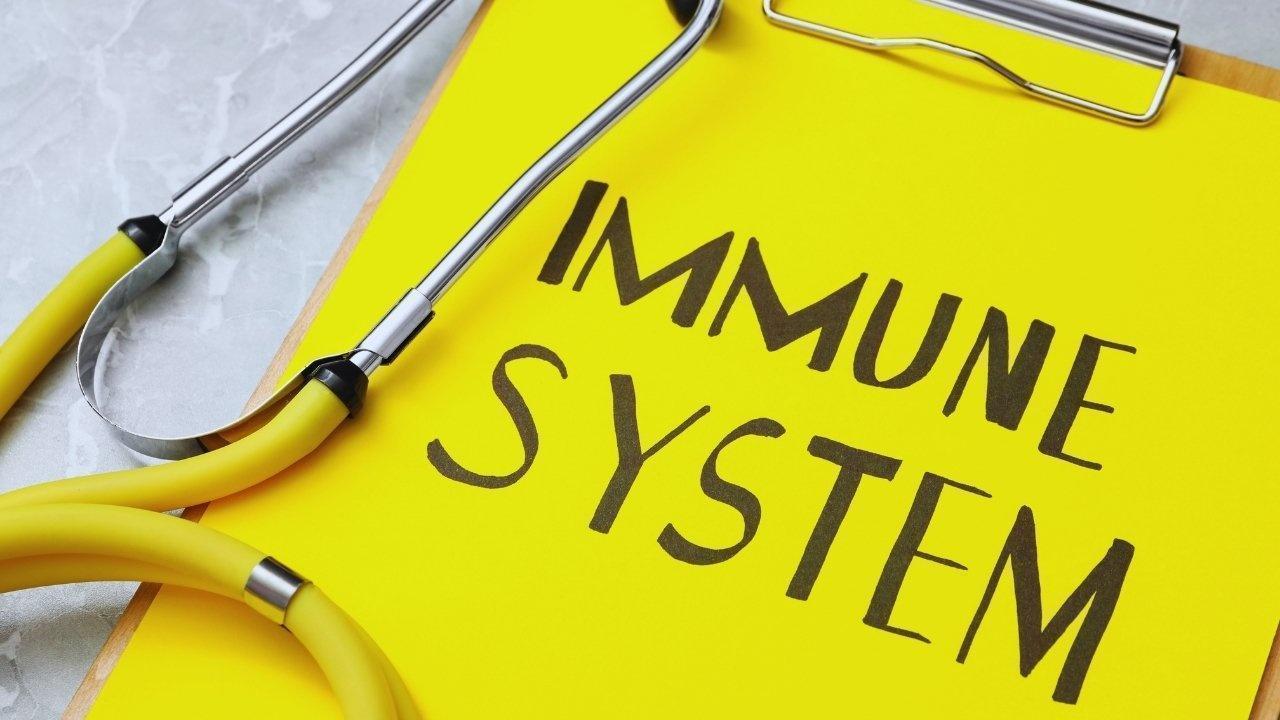
Post by : Anees Nasser
The pandemic has transformed our perception of health in unprecedented ways. As daily life faced uncertainty, the term "immunity" surged into public consciousness. Individuals who once overlooked their immune systems became acutely aware of its complexities, vulnerabilities, and strengths. This newfound awareness, born from crisis, has evolved into a lasting lifestyle change, influencing choices related to nutrition, physical activity, sleep, and overall wellness routines.
More than four years on, the heightened awareness surrounding immunity remains robust. It has matured into an understanding that immunity is not a quick fix but rather an ongoing journey shaped by daily habits, emotional well-being, environmental influences, and consistent practices. Health has transitioned from a peripheral concern to a central element of everyday life, shaping buying habits, career decisions, family activities, and even personal environments. The implications are clearly visible in households, workplaces, and wider communities.
The core narrative is not solely about how individuals safeguarded their health during the pandemic but how these lessons continue to impact their lives.
Prior to the pandemic, immunity was often linked with seasonal supplements and occasional health remedies. Today, it embodies a more holistic view of overall lifestyle choices, encompassing diet, stress management, quality of sleep, environmental conditions, and mental health. This profound shift has redefined not only consumption patterns but also approaches to health and well-being.
People now recognize their immune systems as dynamic entities influenced by gut health, emotional stability, hormonal balance, and regular physical activity. This comprehensive understanding encourages the adoption of long-term habits over temporary solutions, emphasizing how daily choices connect to bodily resilience. Awareness birthed during the infectious disease period continues to alter the social landscape of wellness.
One significant change since the pandemic has been a heightened consciousness regarding dietary habits. Many are now cognizant of the direct relationship between food choices and immunity, recovery, and long-term health. Households post-pandemic are incorporating more fresh produce, vegetables, whole grains, and nuts than ever before. Even families that previously depended on packaged foods are incorporating fresh ingredients into their daily diets.
Medicinal herbs and spices such as turmeric, ginger, garlic, and tulsi have regained their importance, not merely as emergency fixes but as essential components of everyday meals. Fermented foods, once niche, have found their way into mainstream diets, reflecting a growing understanding of gut health's role in immunity. There's also been a shift towards home-cooked meals, emphasizing freshness, hygiene, and balanced nutrition.
This transformation goes beyond merely preventing illness. It's about fostering long-term internal strength. Parents, in particular, are more vigilant in ensuring their children’s diets are rich in immunity-boosting foods.
Physical fitness has evolved beyond weight management or aesthetic goals; its link to immunity is recognized more than ever. People are engaging in daily activities like brisk walking, yoga, jogging, and strength training with renewed intention. This understanding affirms that an active lifestyle bolsters circulation, hormonal equilibrium, metabolic health, and stress management—all critical for a resilient immune system.
During lockdowns, exercise served as a crucial outlet for managing stress and maintaining well-being. Many of these habits persist today, with former non-exercisers now viewing physical activity as a necessity rather than a luxury. Regular morning routines, outdoor weekend outings, and family fitness activities have become normalized. Companies, too, are increasingly investing in workplace wellness, promoting fitness and health engagement in their cultures.
This cultural pivot to viewing movement as essential to immunity represents a permanent lifestyle shift.
An essential lesson from the pandemic was the revelation of the link between mental health and immunity. Awareness of how stress, anxiety, isolation, and burnout can undermine the body’s defenses has permeated public understanding. This acknowledgment has brought mental health issues into open conversation, reducing stigma and encouraging individuals and families alike to prioritize emotional balance.
Mindfulness practices, journaling, meditation, therapy, nature walks, and breathing exercises are now staples in daily life. Workplaces have begun to recognize the importance of supporting emotional health, with many offering access to counseling, wellness sessions, flexible schedules, and mental health days. This shift acknowledges that immunity is not just physical; emotional wellness is also essential.
The realization that emotional stress can weaken the body’s immune defense has shifted how people manage their mental environments, promoting healthier lifestyles.
The hygiene practices developed during the pandemic have solidified into long-term habits. Individuals now maintain cleaner living spaces, regularly wash their hands, minimize physical contact during illness seasons, and sanitize commonly used surfaces. This enhanced vigilance has proven effective in reducing seasonal illness rates.
Public venues have also adapted, with restaurants emphasizing hygiene transparency and workplaces investing in better air quality systems. Personal cleanliness has become instinctual, with small acts like carrying sanitizers or avoiding public surfaces becoming second nature.
This culture of hygiene contributes not only to personal health but also to community well-being, reflecting a broader shift in societal responsibility and personal accountability.
Post-pandemic, individuals have transformed their relationship with healthcare. Rather than waiting until illness strikes, people are proactively embracing preventive health measures. Routine check-ups are now more commonplace, with an emphasis on monitoring vitamin levels, respiratory health, and metabolic markers to facilitate early intervention.
Heightened awareness around health insurance and long-term wellness investments are evident. Wearable technology for tracking health metrics has entered everyday life, aiding individuals in understanding their bodies and prompting timely action when necessary.
Most importantly, the belief that immunity can be fortified by early lifestyle choices holds individuals accountable for their long-term health decisions. Preventive healthcare has evolved from a luxury to a cornerstone of contemporary wellness.
While modern healthcare remains critical, there has been a revival of traditional practices. Ancient recipes, herbal remedies, local healing plants, and home-based treatments have gained relevance for their sustainable approaches to health.
This resurgence stems from appreciation rather than fear. People are now integrating these practices into their routines rather than reserving them for illness. The realization that these traditional methods often align with immune-supportive principles—such as reducing inflammation or enhancing digestion—has led to their acceptance across age groups.
This fusion of contemporary science and age-old wisdom represents a well-rounded approach to health, appealing to diverse demographics across regions.
Family dynamics transformed during the pandemic, fostering closer communication and support. With immunity as a collective priority, households focused on shared routines—cooking, exercising, practicing mindfulness, and monitoring health together. These practices have fortified family ties and cultivated environments where wellness is prevalent.
Communities have also responded positively, demonstrating greater awareness around staying home when ill and reducing risks to vulnerable members. This expanding sense of responsibility goes beyond the household, reaching into broader social interactions.
Health has shifted from being a solitary pursuit to a communal responsibility.
The ongoing effects of heightened immunity awareness post-pandemic are revealing themselves, signaling that immunity will remain integral to lifestyle choices moving forward. From dietary patterns and mental health to physical activities and healthcare strategies, the focus on enhancing natural defenses has become woven into the fabric of society.
The acknowledgment that immunity isn't forged in crisis but built daily has fostered a more balanced and health-conscious culture. As new wellness trends emerge and scientific insights progress, the centrality of immunity will guide how communities nourish, exercise, relax, and engage.
While the pandemic reshaped the world temporarily, the lasting lessons it imparted are set to influence lifestyle choices for generations to come.
This article is for informational purposes and is not a substitute for professional medical advice, diagnosis, or treatment. Always seek guidance tailored to your health needs.










Telangana Women Tragically Killed in California Car Accident, Families Request Assistance
Two Telangana women in the US die in a tragic car crash, prompting families to seek government suppo

Dhurandhar Achieves Remarkable Success, Surpassing ₹1100 Cr Worldwide
Ranveer Singh's Dhurandhar continues its box office dominance, crossing ₹1100 crore globally and sur

Asian Markets Climb as Dollar Weakens and Silver Surpasses $80 on Rate Cut Anticipation
Asian equities hit six-week highs while silver crosses $80, buoyed by expectations of Federal Reserv

Kathmandu Mayor Balendra Shah Aligns with Rastriya Swatantra Party Ahead of Upcoming Polls
Mayor Balendra Shah partners with Rastriya Swatantra Party to challenge Nepal's entrenched political

Independent Review of Law Enforcement Initiated in Australia Following Bondi Tragedy
In response to the Bondi shooting, Australia announces an independent review of law enforcement to e

Jaideep Ahlawat Steps in for Akshaye Khanna in Drishyam 3
Akshaye Khanna exits Drishyam 3 over a wig dispute, with Jaideep Ahlawat stepping in as his replacem